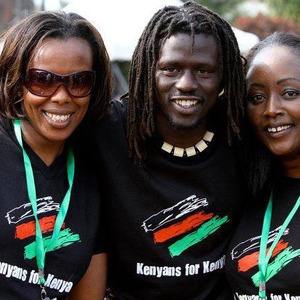The Wits Business School and the Southern Africa Trust last month announced the establishment of an academic chair in African Philanthropy at the university.
The initiative creates a research, academic and teaching focus around philanthropy and its role within African societies, but it also brings the continent’s experience and resources more firmly into its own development agenda.
African philanthropy has always existed on some level – the continent’s deep-rooted values of social solidarity and inter-personal connectedness mirrors western notions of philanthropy.
Types of giving
According to a report released by the African Grant-makers Network, which looks at various frameworks of African philanthropy, there are three broad categories of “giving” on the continent:
1. High net worth and institutional giving: where centrally controlled resources are directed towards a set of defined charitable aims in the broader society.
2. Mobilised philanthropy: where institutional structures continually mobilise resources from a range of sources to channel towards defined charitable aims in the broader society.
3. Community philanthropy: where givers pool resources to tackle challenges in their own immediate community that any one individual would have been unable to address.
Africa’s high net worth individuals give approximately $7 billion every year – but this is mostly in response to local needs. An example of this is Nigeria’s 2012 Flood Relief Fund. At least three of Africa’s wealthiest people; Aliko Dangote (President of the Dangote Group), Jim Ovia (Founder of Zenith Bank) and Tony Elumelu (Chairman of Heirs Holdings) donated over $22 million to the fund. They are all Nigerian and rallied to a Nigerian cause.
Creating foundations
These high net-worth individuals are also more likely to create foundations that will continue philanthropic efforts “at home”. For example, Francois van Niekerk, the South African founder of Mertech Group who gave 70% of his equity to his Mergon Foundation, which funds education, health and skills-building initiatives. In Nigeria Theophilus Danjuma, the chairman of South Atlantic Petroleum gave $100 million to set up the TY Danjuma Foundation, a grant-making organisation that partners with NGOs in education, health, policy and poverty-related fields.
Giving however is not limited to high net-worth individuals. In South Africa the annual “Casual Day” is the country’s largest fundraising event which includes the participation of approximately 4,500 companies, 100 hundred schools and 400 organisations. The campaign invites participants to dress differently for a day to raise funds and raise awareness of persons with disabilities – to earn the right to dress up this way, participants make a donation of $1.
In Kenya, the “Kenyans for Kenya”, is a case of how a community can pool resources towards a cause and is one of the country’s most successful fundraisers. It started in July 2011 and aimed to raise approximately $5.28 million in one month. That target was reached in 10 days. This money was raised from ordinary Kenyans and organisations who donated whatever they could.
One reason why this was a successful fundraiser is because Kenyans had faith in the organisations who initiated it – Safaricom Foundation, Kenya Commercial Bank (KCB), Media Owners Association (MOA) – and the organisation that was implementing it – the Kenya Red Cross.
Lack of trust
A trend apparent in African philanthropy is that it looks set to stay at “home”, rather than happen across borders in a “pan-African” way.
The reason Africans are less likely to donate to a pan-African effort is because they may not be familiar with organisations handling the projects, or are used to seeing the corruption that exists within local institutions and may not trust that their money will go to the right places. After all, the continent has seen billions of dollars in both taxes and aid come and go without much change over the decades.
However, even though pan-African fundraising is fledgling, Africans do still buy into the good neighbourly spirit – but only insofar as it doesn’t involve money. This is why there are so many concerts or public campaigns on social media – but unfortunately many of these result in very little pan-African action on the ground.
Just a matter of time
A case in point is the “Africans Act 4 Africa” campaign. In December 2011 African singers, TV personalities, activists and citizens came together to call on people across Africa to use social media in a day of action to end hunger in the continent. The campaign aimed to send a message to African leaders that the crisis in the Horn of Africa at the time must be the last famine ever for the continent.
But cross-border philanthropy, will happen in the end. Several factors favour it. The existence of cross-country mobile networks such as MTN and Airtel already herald a new age of possibilities in terms of mobile money donations. Kenya’s Safaricom’s has formed partnerships that enable mobile money transfers across East Africa, and has a diaspora service.
When regulations and law catch up, and citizens across borders become familiar with them, pan-African fundraising should be easier. A brave ubuntu future beckons.

